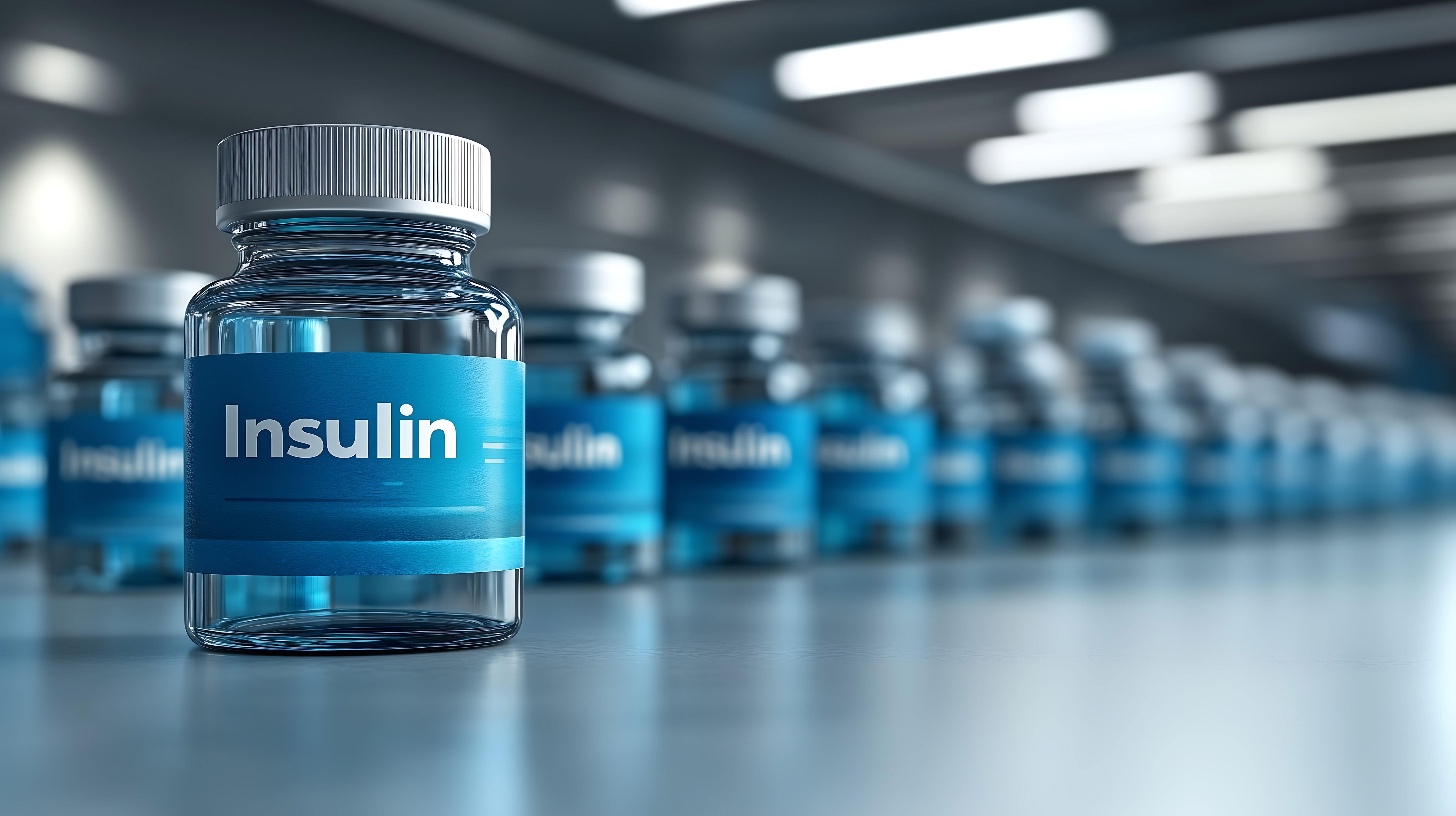- Bone Health
- Immunology
- Hematology
- Respiratory
- Dermatology
- Diabetes
- Gastroenterology
- Neurology
- Oncology
- Ophthalmology
- Rare Disease
- Rheumatology
FDA Approves First Insulin Aspart Biosimilar
The FDA approved Merilog (insulin-aspart-szjj) as the first biosimilar to reference Novolog (insulin aspart) for the treatment of adult and pediatric patients with type 2 diabetes.
The FDA approved Merilog (insulin-aspart-szjj) as the first biosimilar to reference Novolog (insulin aspart) for the treatment of adult and pediatric patients with type 2 diabetes.1
There are 3 insulin biosimilars approved in the US, 2 insulin glargine products and 1 insulin aspart. | Image credit: Antto-AI - stock.adobe.com

Merilog is the third overall insulin biosimilar to receive approval, following 2 insulin glargine biosimilars: Semglee (insulin glargine-yfgn) and Rezvoglar (insulin glargine-aglr).2
“The FDA has now approved three biosimilar insulin products to treat diabetes,” Peter Stein, MD, director of the Office of New Drugs in the FDA’s Center for Drug Evaluation and Research, commented in a statement.1 “Today’s approval highlights our continued efforts to improve the efficiency of the biosimilar approval process to help support a competitive marketplace and increase options for costly treatments, like insulin. Increasing access to safe, effective and high-quality medications at potentially lower cost remains a continued priority for the FDA.”
Insulin aspart is a rapid-acting human insulin analog designed to manage mealtime blood sugar spikes and improve glucose control for people with type 2 diabetes. When launched Merilog will be available in both a 3 mL single-patient-use prefilled pen and a 10 mL multiple-dose vial.
Over 38 million people in the US have been diagnosed with diabetes. Around 8.4 million Americans depend on insulin therapy—either rapid-acting, long-acting, or both—to manage their condition. Insulin, a hormone produced by the pancreas, enables glucose to enter cells for energy. In diabetes, the pancreas fails to produce enough insulin to maintain normal blood sugar levels, increasing the risk of serious health complications.
The high cost of reference insulin products often leads patients to skip or ration their insulin treatments to save money.3 One JAMA study found that among US adults under 65 with diabetes who use insulin, 1 in 5 rationed their supply due to cost. The study also revealed that nearly 71% of all adults who reported rationing insulin for financial reasons were under 65 and therefore ineligible for the out-of-pocket cost limits set by the Inflation Reduction Act.
“For the millions of people who rely on daily injections of insulin for treatment of diabetes, having a biosimilar option for their rapid-acting insulin injection can truly make a difference, as biosimilar products have the potential to increase access to these life-saving medications,” Sarah Yim, MD, director of the Office of Therapeutic Biologics and Biosimilars in the FDA’s Center for Drug Evaluation and Research, said.1
The approval was based on data from the 6-month, randomized, open-label, phase 3 GEMELLI 1 study (NCT03211858).4 The researchers compared the efficacy, safety, and immunogenicity of the Merilog (known as SAR341402) with originator insulin aspart in 597 patients with type 1 or type 2 diabetes using multiple daily injections with insulin glargine.
At week 26, HbA1c reductions were similar (biosimilar, –0.38%; originator, –0.30%), with a least squares mean difference of –0.08% (95% CI, –0.192 to 0.039), confirming noninferiority. Fasting plasma glucose, postprandial glucose excursions, insulin dosages, and safety outcomes, including immunogenicity and hypoglycemia rates, were comparable between groups. The researchers determined that the biosimilar provided effective glycemic control with a similar safety profile to the reference product.
Similar to Novolog, Merilog should be administered subcutaneously via injection into the abdomen, buttocks, thighs, or upper arms within 5 to 10 minutes before a meal.1 Dosage should be individualized and adjusted based on each patient’s specific needs.
Merilog may cause serious side effects, including hypoglycemia (low blood sugar), severe allergic reactions, and hypokalemia (low potassium levels). Common side effects may include injection site reactions, itching, rash, lipodystrophy (skin thickening or pitting at the injection site), weight gain, and swelling in the hands and feet.
References
1. FDA approves first rapid-acting insulin biosimilar product for treatment of diabetes. FDA. Press release; February 14, 2025. Accessed February 17, 2025. https://www.fda.gov/news-events/press-announcements/fda-approves-first-rapid-acting-insulin-biosimilar-product-treatment-diabetes
2. Biosimilars approvals. The Center for Biosimilars®. Updated February 17, 2025. Accessed February 17, 2025. https://www.centerforbiosimilars.com/biosimilar-approvals
3. Fang M, Selvin E. Cost-related insulin rationing in US adults younger than 65 years with diabetes. JAMA. 2023;329(19):1700-1702.doi:10.1001/jama.2023.5747
4. Garg SK, Wenicke-Panten K, Wardecki M, et al. Efficacy and safety of insulin aspart biosimilar SAR341402 versus originator insulin aspart in people with diabetes treated for 26 weeks with multiple daily injections in combination with insulin glargine: a randomized open-label trial (GEMELLI 1). Diabetes Technol Ther. 2020;22(2):85-95. doi:10.1089/dia.2019.0382
Newsletter
Where clinical, regulatory, and economic perspectives converge—sign up for Center for Biosimilars® emails to get expert insights on emerging treatment paradigms, biosimilar policy, and real-world outcomes that shape patient care.
